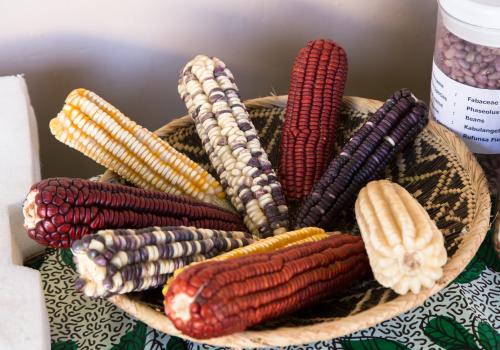The Southern African Development Community (SADC) Secretariat held a dialogue on the business model and governance of the proposed SADC Centre of Excellence (CoE) for Nutrition.
The dialogue unpacked the feasibility study report on the Malawi experience and related findings and recommendations and facilitated peer learning and exchanges on what has worked in the Member States to accelerate the nutrition agenda. The dialogue also sought to explore the sustainability strategy and funding of the CoE for Nutrition as well as to develop a roadmap on the establishment of the Centre.
SADC focal persons responsible for Nutrition and Food Security from the 16 Member States, academics with experience on the establishment of CoEs and Food and Nutrition Councils, representatives of civil society, development partners and United Nations agencies participated in the virtual meeting on 8th and 9th February 2023
The Director Social and Human Development in the SADC Secretariat, Ms Duduzile Simelane, gave an overview of the key role that the CoE for Nutrition could play within the SADC Region. United Nations Children’s Fund Eastern and Southern African Regional Office (UNICEF ESARO) Regional Nutrition Adviser Christiane Rudert ,shared evidence on the status of maternal and child nutrition and provided recommendations to mitigate the drivers of malnutrition. She further indicated that UNICEF has thought leadership innovations on food systems transformation and social protection that can be shared to promote south to south learning.
Malawi, the host of the proposed CoE, shared the findings of their national feasibility study on the Centre that was supported by the UN-WFP, after which Member States deliberated on the findings. The dialogue provided an opportunity for various experts, including academia and civil society, to present on their experiences regarding how a CoE for nutrition should operate, how it can be funded, including its hosting which can either be physical or virtual.
Member States agreed on several themes for the CoE which included research and food product development, nutrition programming, advocacy and communication, infrastructure, teaching and training, policy and programming, strategy formulation, legislative frameworks, nutrition service delivery, gender, partnerships and networks. The business model proposed was one which would follow SADC guidelines.
The governance structure was deliberated on, and key considerations discussed included the importance of having the CoE being more autonomous and established on a sound legal framework. Member States deliberated on various funding mechanisms which included taxation, revenue from trainings and creative fund-raising innovations by Member States. Also proposed was the idea that as the scope advances, other functions could include establishing industries which would produce lifesaving nutrition commodities such as therapeutic milk, ready-to-use-therapeutic food and micronutrients for sale within the Region and beyond.
These initial deliberations have created the necessary rapport for continued engagement and follow up actions. The next steps will include the rollout of a regional feasibility study and learning from other CoEs in the Region through the support of the Food and Agriculture Organisation (FAO). In so doing, a roadmap for implementation will be established and consensus built. In addition, conducting a regional capacity mapping and creating a database are some of the initial activities planned for the proposed CoE for Nutrition in 2023.

